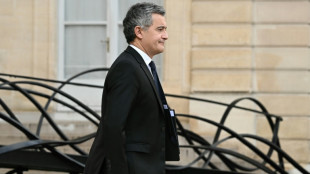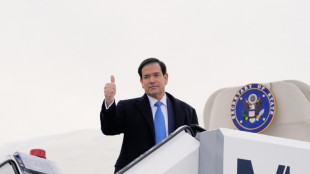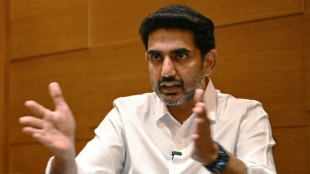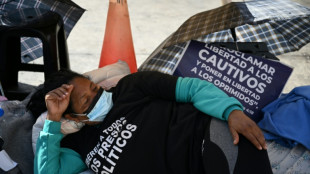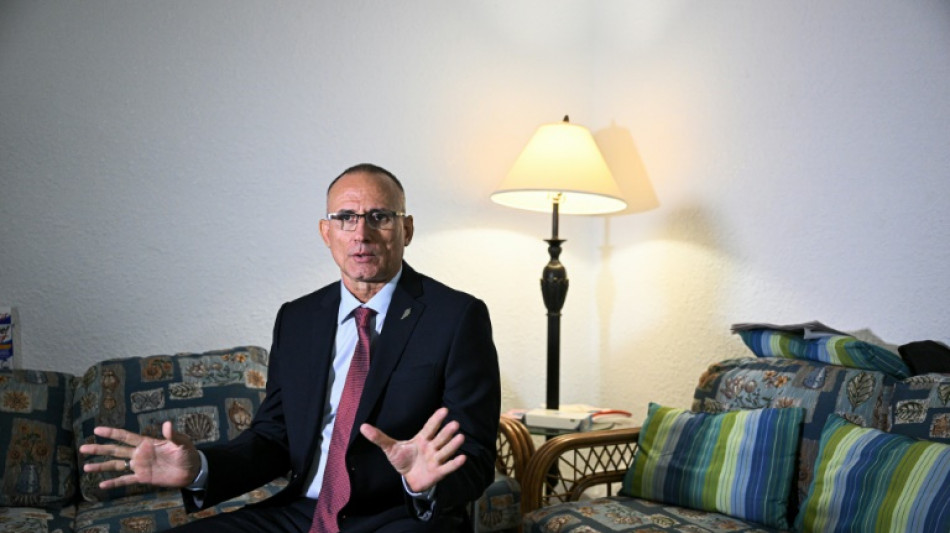

Exiled dissident encourages Cubans to stay and fight
There's no rest for Jose Daniel Ferrer, a Cuban dissident who arrived in the United States this week and is determined to work with other exiles to democratically unseat the communist government in Havana.
"We have to be proactive if we want to encourage Cubans to fight for their rights, for their freedom, instead of leaving the country with a 'save yourself if you can' type of mentality," the longtime activist told AFP from his new home in Miami.
Ferrer is the founder of the pro-democracy movement Patriotic Union of Cuba (UNPACU), and has paid a price for his efforts.
The 55-year-old was detained during Cuba's July 11, 2021 protests -- the largest protests the island has seen since the 1959 communist revolution -- and was released in January of this year.
He was imprisoned again in April until he was again released Monday, when he fled into exile.
- Family and country -
Ultimately, Ferrer said it wasn't until Cuban authorities began pressuring his loved ones -- threatening merchants that sold them goods and raiding his home -- that he made the "very tough" decision to accept exile to the United States.
"That whole situation, knowing that the government is going to increase the level of harassment toward my family -- it caused a pain that is difficult to bear," he said.
In prison, Ferrer said he was beaten and forced to eat rotten food, and he struggled to engage with his network of activists as well as an apathetic population.
"It hurts that my compatriots don't care about my sacrifice or that of other opponents, and only think about leaving the country," he said. "The fact that so many people are leaving Cuba, and that mentality of 'nobody can fix this,' has done a lot of harm," he said.
Ferrer was also imprisoned between 2003 and 2011, after being arrested with 74 others during the so-called "Black Spring" protests, and knows how hard it is to go against a government that uses "excessive repression."
But he believes "if more people were involved in the resistance, it would be harder to repress them."
- Creative activism -
Despite the disappointments and hardships he's faced, Ferrer vows to continue his fight from Miami.
"With the exile community, we are going to promote creative and non-violent activism throughout the island, from Guantanamo to Pinar del Rio," he said enthusiastically.
Through a network of contacts, Ferrer wants to distribute flyers, spread graffiti and use other messaging tactics to inspire the people to question those in power.
"We are going to tell the people: 'The primary culprit isn't simply the government that imposes its will, but also you who endure it. The solution is not to escape, but to fight for your rights," he said.
The activist believes the opposition hasn't been able to address "what affects the population the most, and offer them solutions" to the daily problems Cubans face, like lack of access to food, medicine and electricity.
"Amid so many needs, freedom and democracy seem like a dream that is too far off."
- Dream of return -
For his dreams to come true, Ferrer believes it's crucial to train activists and organize aid from the international community.
"If we were more unified inside and outside Cuba, we would have convinced Europeans and other Western governments that we deserve more solidarity, as Maria Corina Machado did," he said, referring to the recent Nobel Peace Prize laureate who is leading the opposition in Venezuela against leftist president Nicolas Maduro.
Ferrer added that he hopes to return to Cuba soon.
"I don't want to go back when everything is done. I want to return to Cuba to make the regime end and begin the transition process toward democracy," he said.
L.Boyle--NG
